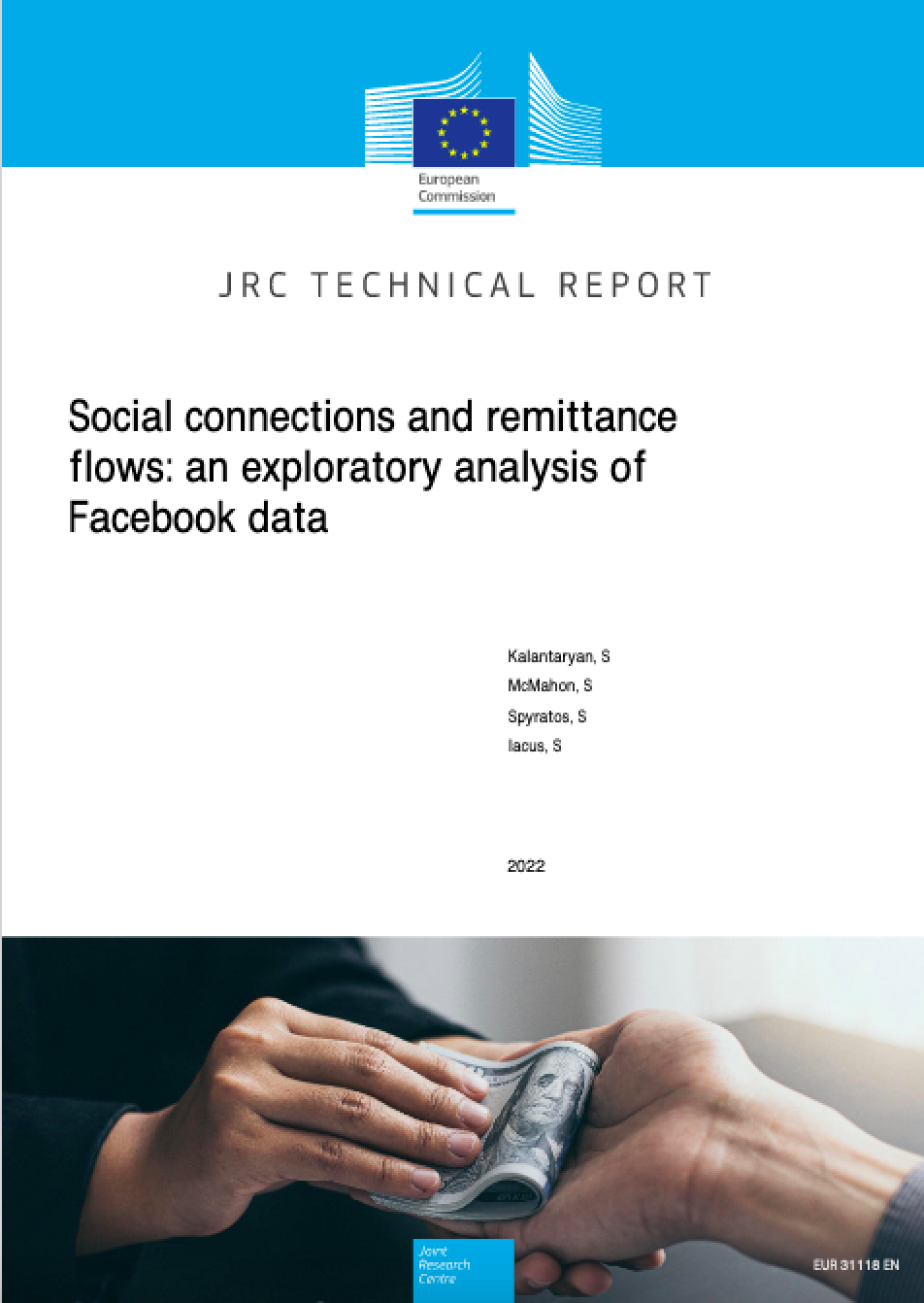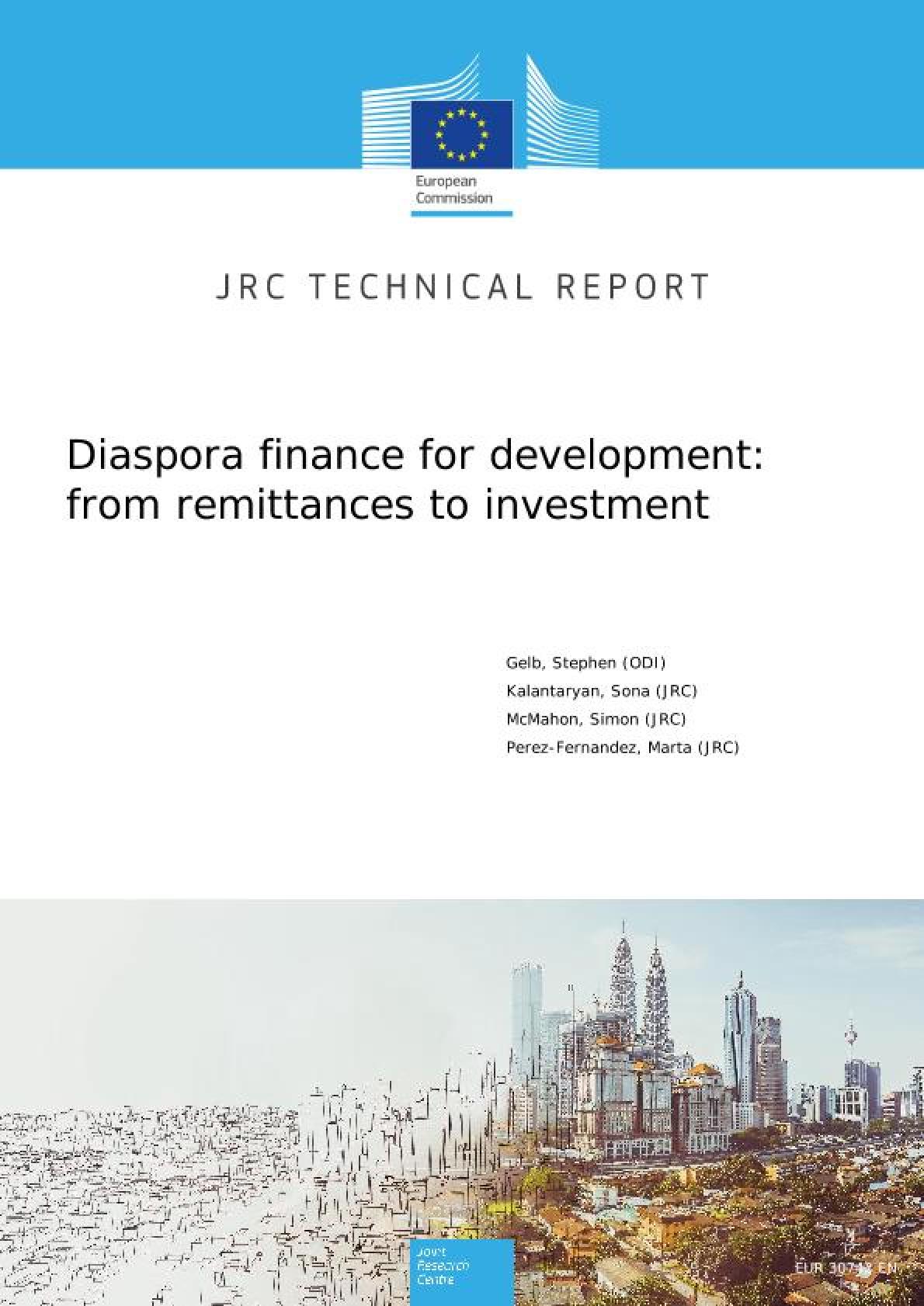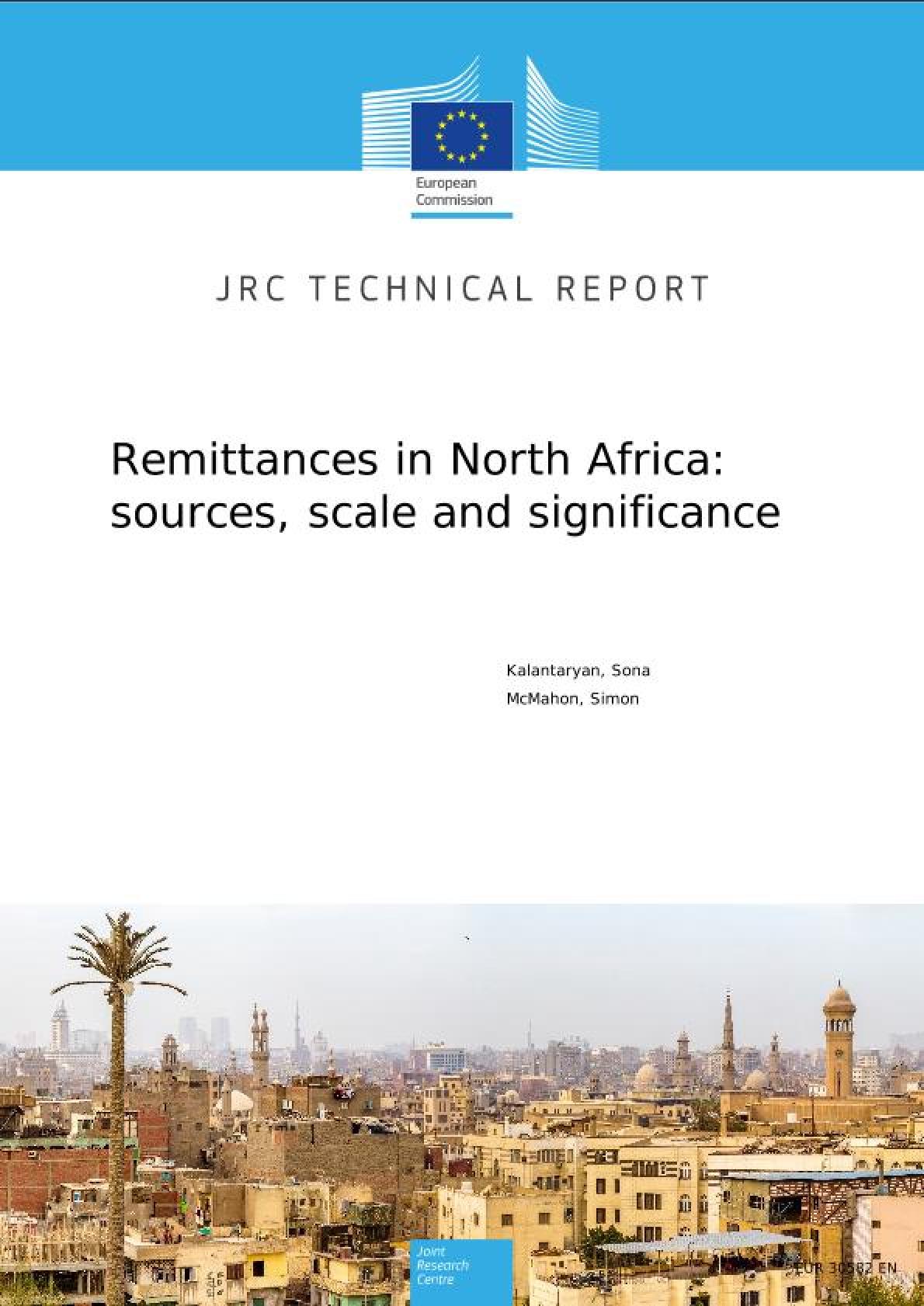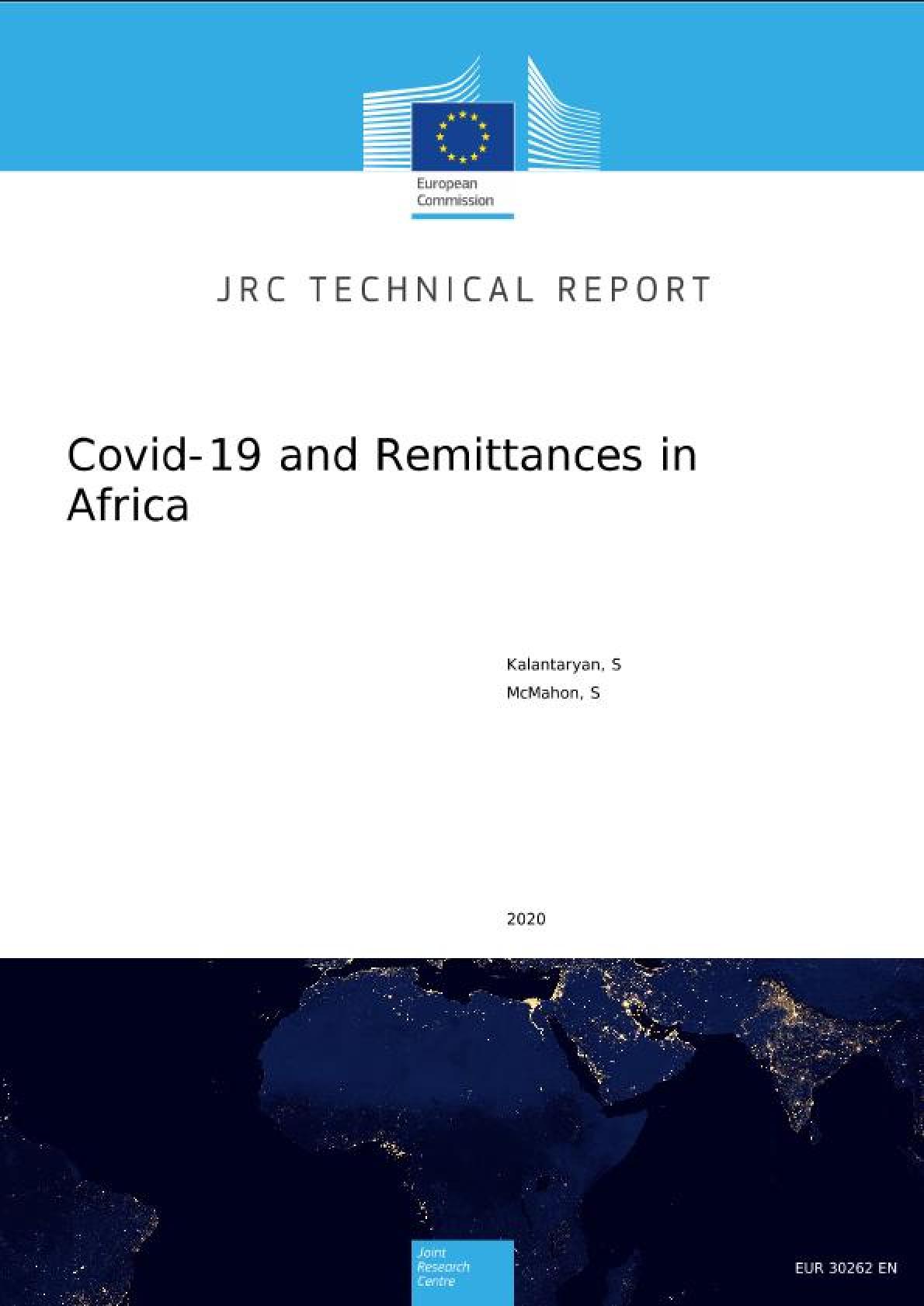Brief me

Overview
The European Union remains determined to support remittances as a key tool of solidarity with the families of migrants. The Commission is now working to accelerate the digitalisation of remittances and investment schemes within the formal channels to make remittances a key component of the post COVID-19 economic recovery and build back better in developing countries
Each year millions of migrants send money back to their countries of origin.These financial transfers can make a significant contribution to development. They help individual families to get by, enable people to start small and medium businesses and provide much needed capital for national economies.
Better understanding remittances and their implications is vital for development. In many low and middle income countries remittance inflows are worth more than Foreign Direct Investment or Official Development Assistance. Facilitating the flow of international remittances, lowering the cost of sending and receiving them and maximising their impact on development are core objectives in a range of international, European and national development strategies and frameworks.
What we do
The JRC contributes to European Commission initiatives on remittances by analysing different aspects of the financial flows sent by migrants and diasporas to their countries of origin. In particular, we:
- Trace trends in remittance flows and costs for different world regions. Analysing international data, we describe differences over time in remittance flows, their scale and changes in the cost of sending.
- Understand who sends and receives remittances, and how they interact with existing patterns of economic and digital vulnerability. This draws on survey data and statistical analysis to enable examinations within, and comparisons across, specific regions and countries.
- Examine the broad range of financial mechanisms that enable migrants and diasporas to invest in their countries of origin. These forms of diaspora finance show that the contribution of migrants and diasporas to development goes far beyond only sending remittances.
Reports and data
Social connections and remittance flows: an exploratory analysis of Facebook data
This report makes a novel contribution to understanding the factors which influence the volume of bilateral remittance flows, and in doing so highlights a potential opportunity for the refinement of international remittance flow estimates. Specifically, the study uses innovative data from Facebook’s Social Connectedness Index to explain bilateral remittance flows. This data source is positively associated with remittance flows and the findings are robust and statistically significant. These findings have two key implications. Firstly, they show that, alongside data on migrant stocks, economic and geographic variables the connections between migrants and their countries and communities of origin make an important contribution to explaining bilateral remittance flows. Secondly, they illustrate how innovative data from non-traditional sources can provide new opportunities for analysing and estimating bilateral remittances.
News: International Day of Family Remittances: supporting more accurate estimates on remittance flows. A new JRC Technical Report published in the occasion of the International Day of Family Remittances explores how data on social connections between migrants and their contacts in their countries of origin could help explain the volume of remittance flows. In doing so, the report highlights an opportunity for the refinement of international statistics on remittances.

Diaspora finance for development: from remittances to investment
This report examines different forms of diaspora finance around the world. Diaspora finance involves remittances, understood as inter-personal financial transfers between migrants and their countries of origin, and diaspora investment, defined as asset-producing financial instruments through which diasporas (migrants and their descendants) can invest in organisations in their country of origin. We identify over 300 diaspora finance initiatives through a systematic review of over 500 research, policy and grey literature documents.
News: Developing countries and pandemic recovery: report maps over 300 migrants’ finance schemes. On the International Day of Family Remittances, we launched the report. Commissioner for Innovation, Research, Culture, Education and Youth, responsible for the Joint Research Centre, Mariya Gabriel said: “This report gives insights on remittances and international development that show us again how vital science is to help understand and address big challenges and grasp opportunities. By bringing a broader perspective and showing where data is missing, the report can inform future action to evaluate and unlock the potential for remittances and investments to contribute to the post-pandemic recovery in developing countries”.

Dataset: The diaspora finance initiatives dataset compiled during this study it is available for download.
Remittances in North Africa: sources, scale and significance
This report examines the sources, scale and significance of international remittances for Algeria, Egypt, Morocco and Tunisia over time and in the context of COVID-19. It also discusses, to the extent that it is possible with currently available data, remittances in Libya. In doing so, the report highlights how these North African countries are quite distinct from one another in terms of the sources, scale and significance of their remittances. This potentially has implications for the way that remittances impact on development and poverty alleviation in each receiving country and the way that policies should be shaped to accommodate and respond to their differences.

Covid-19 and Remittances in Africa
The spread of Covid-19 and ‘stay at home’ measures in response to it are dramatically reshaping global societies and economies. This report contributes to understanding the potential economic implications of the Covid-19 crisis by focusing on its implications for migrant remittances in Africa. Large declines in remittance inflows could affect the capacity of many African countries to address and exit from the crisis. The report describes macro-economic indicators (remittance flows and their relation to GDP) and analyses microdata from the 2016-2018 Afrobarometer survey, which produces nationally representative samples of 1200 observations per country.
News: JRC report: coronavirus could remove safety net for millions of households. As the world deals with the fallout of the coronavirus pandemic, we launched our new JRC report describing how falling remittances could remove a major source of income for people in several African countries. The findings can support responses by looking beyond the total scale of inflows and reflecting on how declining remittances intersect with existing social and economic challenges.

Online storymap: An interactive web page explores the potential implications of COVID-19 for remittance flows, and the households which receive remittances, in Africa. It presents visualisations, analysis and key messages from this report. Narrative from the Africa Knowledge Platform.
Impact
Remittances and investment: How migrants finance sustainable development
IFAD and the European Commission (EC) jointly host the eGFRID webinar on the topic of “Remittances and investment: How migrants finance sustainable development.” The webinar shed light on the two modalities of migrants’ financial contribution to their countries of origin – remittances and investment – and their complementarities, to offer cues on how they can be supported and leveraged, and to identify potential strategies in alignment with development challenges.
At the first regional conference of the THAMM programme, we discussed remittances, diaspora investments and the COVID-19 pandemic with approximately 100 policymakers, researchers and civil society representatives from North Africa. The THAMM programme seeks to foster mutually beneficial legal migration and mobility in North Africa.
At the EU Diaspora Facility (EUDiF) Future Forum we engaged with a range of diaspora organisations to discuss remittances, diaspora investments and the implications of the report Diaspora finance for development: from remittances to investment. EUDiF is a pilot project funded by the European Union’s Directorate-General for International Partnerships (DG INTPA) and implemented by the International Centre for Migration Policy Development (ICMPD).
Mapping remittances and their implications in 2020: a focus on IGAD countries
At the 2nd IGAD Scientific Conference On Migration And Displacement on Human Mobility in the Context of COVID 19, we discussed remittance flows in East Africa, their sources and potential vulnerabilities of different remittance corridors, the cost of remitting to these countries, the potential impact of the COVID-19 pandemic on remittance flows and the potential for a shift to digital remittances as a way to respond to the pandemic.
Latest knowledge from this Project
More information
| Originally Published | Last Updated | 26 Sep 2021 | 04 Jul 2022 |
| Knowledge service | Metadata | Migration and Demography | Drivers of Migration | Diaspora |
| Related organisation(s) | JRC - Joint Research CentreKCMD - Knowledge Centre on Migration and Demography |
| Digital Europa Thesaurus (DET) | Remittancesmigration |
Recommended reading
Attitudes and perceptions
New study offers insights for EU migration and development programming in the Horn of Africa
Women and Climate Adaptation in Rural Sub-Saharan Africa: Constraints and Research Priorities
Share this page
